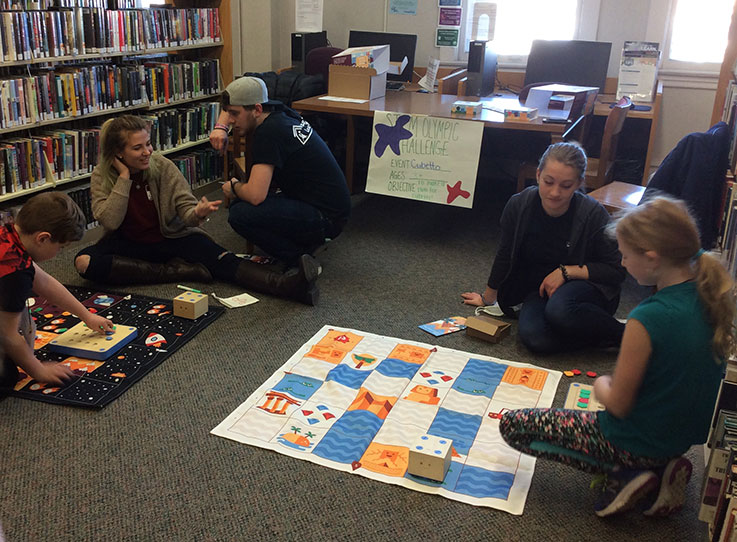Preschool and elementary school children will have the chance to “go for the gold” while doing hands-on science experiments on January 18 from 10:00 a.m. to noon at the Indiana Free Library in downtown Indiana.
 The STEM Olympic Challenge will be hosted by about 50 resident assistants from Indiana University of Pennsylvania's Office of Residence Life.
The STEM Olympic Challenge will be hosted by about 50 resident assistants from Indiana University of Pennsylvania's Office of Residence Life.
The series of activities is designed to encourage and inspire preschool and elementary students to discover and be excited about STEM (Science, Technology, Engineering, and Math). The Olympics theme was chosen to encourage children to test their skills in a variety of events and activities. All ages are welcome, but events will be focused for children in grades three, four, and five.
Different STEM stations will be set up throughout the library to accommodate different age groups. Greeters will direct participants to the appropriate areas. Participants will receive a STEM “Olympic Passport” and will be encouraged to participate in several projects. Preregistration is not required.
Upon completion of at least three projects, children can return the passport for prizes based on how many initiatives they tried. The IUP resident assistants raised funds for the prizes for participants.
One of the goals for the project is to provide an opportunity for IUP students to engage with elementary students as they share their passion for learning and exploration.
The program supports several of IUP's residential living-learning communities, and in particular, the Natural Science and Mathematics, Education and Communications, and Leadership Development communities.
IUP's Residential Revival buildings includes living-learning floors and or clusters based on these themes: business, education and communications, fine arts, global awareness, health and wellness, leadership development, natural sciences and mathematics, and social justice and civic engagement.
The Natural Sciences and Mathematics living-learning community includes the mathematics, computer science, and psychology cluster; women in math, science, and technology cluster; natural sciences cluster; and safety sciences cluster.
Clusters in the Education and Communications living-learning community include communications media and education, and specialized resource rooms.
The Leadership Development living-learning community includes a leadership development cluster with hands-on leadership development experiences and an ROTC cluster.
Living-learning clusters are designed to allow students within these disciplines or interests to connect, interact, and study with one another outside of the classroom. Student-directed programming is offered throughout the academic year in all of the living-learning communities and clusters.